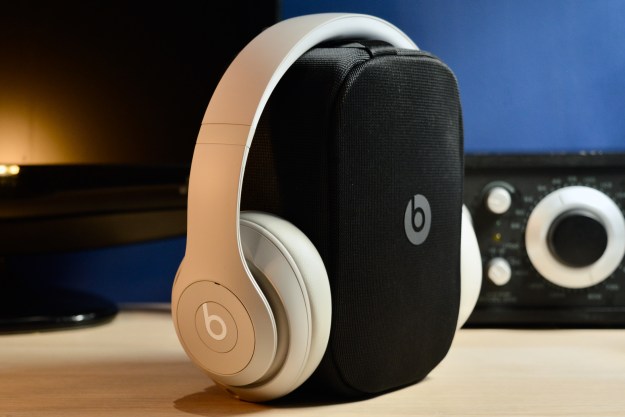
Those who enjoyed Bradley Cooper’s popular 2018 remake of A Star Is Born may have found a new medical ailment to freak themselves out about in the process: Hearing loss. Though his gentle baritone sounds (oddly) terrific coming out of his booze-rattled esophagus, Cooper’s character Jackson Maine (Jack) has to endure a constant ringing in his ears, courtesy of prolonged exposure to loud noises.
Seeing as the vast majority of us now spend a significant amount of time blasting our favorite tunes through headphones or attending loud concerts by our favorite new bands, we all have every reason to fear hearing damage. We spoke to Dr. William Slattery, III, of Los Angeles’ House Clinic, who is both Bradley Cooper’s real doctor and his character’s doctor in the film, about how to make sure we can enjoy our favorite sounds for years to come without the fear of hearing loss. Here are his tips for avoiding hearing damage:
Avoid loud noises (even for short periods)
Perhaps the scariest thing about hearing loss is that it can happen with even limited exposure to very loud sounds — going to a single insanely loud concert can cause Tinnitus, the issue that troubles Cooper’s character in A Star Is Born.

“Any noise exposure can cause hearing loss, so even one concert can potentially do significant damage,” says Dr. Slattery. “The most important thing people can do is the avoidance of loud noise.”
If you’re going to go somewhere you know might be loud, it’s best to bring a pair of earplugs, which can significantly reduce the impact of loud noises on your ears. If you’re a musician or frequently attend loud concerts, it can be beneficial to get a pair of custom-fitted earplugs, which are designed to reduce all frequencies more evenly than the standard foam earplugs you’d find at a pharmacy.
One thing’s for sure — don’t worry about looking “lame” at concerts in earplugs. It’s better to protect your hearing and enjoy the tunes than to deal with issues stemming from noise exposure.
Even if you’re not a musician, pay attention to your ears
While musicians are more often exposed to the kinds of stage and practice volumes that can damage their hearing, they are also often more aware of changes to their hearing, and more likely to intervene before hearing loss becomes severe.

“Musicians are much more sensitive to ear problems as opposed to the normal population,” says Dr. Slattery, “They spent years tuning their ears to determine different pitches, so therefore they are much more sensitive to any change in hearing or perception of sound.”
The fact is, we should all pay more attention to our hearing, making note of any changes over time so that we can prevent more severe issues long-term.
“Unfortunately, hearing loss is the silent disease. People are not aware of it until it’s severe,” Dr. Slattery says, “There are many times with mild hearing loss that people assume they have cognitive problems when in fact it’s a hearing problem.”
Know the signs
Other than the fact that the doctor’s visit was done in a dressing room, which Dr. Slattery says is, ‘Highly unusual,” the issues that faced Cooper’s character were very realistic.
“Jackson Maine portrayed the typical problems people have with hearing loss,” he says.
“Misunderstanding is usually the first sign as opposed to not hearing, which is due to the loss of the perception of consonant sounds.”
Keep it below 80 dB
Dr. Slattery recommends we all attempt to listen to music at 80 decibels or less, a level he claims should allow you to have a conversation with someone around you without raising your voice.

“The best kinds of headphones for preventing hearing loss are those that have an automatic mute button over 80 decibels,” he says.
Many headphones don’t offer this, but an easy way to regulate volume is to purchase an affordable decibel meter and put it between the earcups of your
The bottom line is, any amount of exposure to loud noises can cause significant hearing loss. So, protect those ears – they’re the only ones you’ve got



